 Go to main content
Go to main content
Archive Website of the UK government
Please note that this website has a UK government accesskeys system.
Main menu
Page menu
Government, citizens and rights

Who holds public appointments - case studies
Public appointments are open to everyone, from all backgrounds and every walk of life. Read the case studies below for examples of people who hold public appointments.
Bonnie Greer, Trustee of the British Museum
"You don’t need a degree from Oxbridge. You learn as you serve your community. Young people, women: get on these boards and get involved"
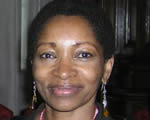
Bonnie Greer is Deputy Chair of the Board of Trustees of the British Museum. This public appointment means she oversees the management of one of the world’s most prestigious museums. Part of the role she has chosen for herself is to meet communities to find out what they want from the museum. She then works with the board to put suggestions into practice. Bonnie is passionate about encouraging young people from ethnic minorities to become more involved in running public services, explaining that diversity leads to better decision making.
"You don’t need a degree from Oxbridge. You learn as you serve your community. Young people, women: get on these boards and get involved. It can open doors and lead to really interesting career opportunities. I hope that ethnic minorities, women and disabled people feel – as citizens – that there is a place for them on the boards of public bodies. We are looking for more people who reflect the face of modern Britain."
Professor Averil Macdonald, Trustee of the National Museums of Science and Industry
"It is essential for board members to be from different backgrounds if this kind of organisation is going to serve the entire community"
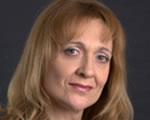
Averil Macdonald works as a professor at the University of Reading. As a working mum and self-described rebel, she had never considered a public appointment. It was when she took a career break and looked for a change of direction that she started to think about helping to promote physics. Averil wanted to specifically encourage more women to become involved in science.
As a trustee of the National Museums of Science and Industry (NMSI), Averil helps run London’s Science Museum as well as The National Media Museum in Bradford. The NMSI is one of the world’s most important groups of museums where trustee responsibilities include fundraising, attracting publicity and overseeing senior management.
"My message for anyone who might be inspired to apply for a public appointment is ‘go for it’. It is essential for board members to be from different backgrounds if this kind of organisation is going to serve the entire community. If a board only represents one type of person it is all very obvious and stagnant. So I am crucially aware of the need for public bodies to be more representative of the population as a whole."
Professor Peter Cooke - Vice Chair of the Independent Living Fund
"I wish to put something back and encourage minority groups to make the best use of their talents."
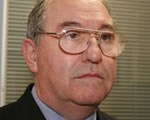
Peter Cooke is a professor at the University of Buckingham Business School. He is a well known commentator on the automotive industries and disability issues. Peter is also Vice Chair of the Independent Living Fund.
"As a wheelchair user for 15 years, I can sometimes bring a different perspective to our discussions on supporting disabled people.
"I have found my public sector non-executive roles to be immensely satisfying; I’m dealing with issues – and people – I would probably never encounter otherwise and I know I benefit from the experience."
"I wish to put something back and encourage minority groups to make the best use of their talents."
Mike Franklin, Independent Police Complaints Commissioner
"Public bodies, like the IPCC, are most effective when they are managed by people from different walks of life"
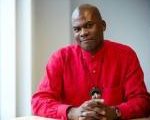
Mike has worked in the private, public and voluntary sectors since leaving school and he takes a keen interest in issues relating to community, policing and race relations. His public appointment is to the Independent Police Complaints Commission (IPCC), the public body that makes sure complaints against the police are dealt with fairly and effectively. As a commissioner, Mike has used his own experience as part of the Black community to help the IPCC improve its work. In South London, for example, he has been involved in changing the way the organisation handles issues such as police “stop and search” and custody relating to young people. In addition to his role at the IPCC, Mike has been instrumental in arranging a gun amnesty in Lambeth, the first ever in UK history, and also sits on the board of a London NHS Trust.
"Public bodies, like the IPCC, are most effective when they are managed by people from different walks of life. I hope these kinds of opportunities can be seen as rewarding ordinary people who have real-life skills and who want to be part of decisions that shape the community. I seek to inspire others, and have always refused to accept that progress is impossible."
Julie Summerell, Non-Executive Board Member for the Football Licensing Authority
"We can learn from other industries and cultures about how to do things better"

Julie Summerell works full time as a risk assessment and management consultant, putting skills gained in her everyday work to good use in her public appointment. The Football Licensing Authority ensures that people can attend football grounds in safety, comfort and security whatever their age, disability or other personal circumstances. It was working for oil companies in the private sector that Julie originally gained the expertise she now employs to improve public services.
"Boards need to be representative of the people they are serving. Don’t overlook the life skills you have. We can learn from other industries and cultures about how to do things better. My public appointment has taught me new management skills and has improved my networking skills. The work has been varied – from attending football matches and safety advisory group meetings with the inspectors to looking at the way that safety certificates are issued – and, while many people might not be aware such work goes on, the implications are huge for the public."
Marilyn Mornington, Member of Family Justice Council
"Bringing skills from your career to a public appointment is a rewarding experience and a real chance to make your community a better place to live."

Marilyn Mornington’s public appointment with the Family Justice Council brings together experts from the worlds of law, health and social care to help improve the justice system for families and children. Drawing on her background as a judge at Wigan County Court, Marilyn has advised the police and other public sector organisations about family law. As a board member, her work also includes campaigning against violence towards women and children, particularly within the Asian community. Through her work, Marilyn has been cited as one of the UK’s most inspirational individuals.
"For me, joining the board of a public body, such as the Family Justice Council, can be rewarding whether you want to expand your skills or are looking for a career development opportunity. Public bodies are helping shape the lives of people in communities in England and across the UK. Bringing skills from your career to a public appointment is a rewarding experience and a real chance to make your community a better place to live."
Mee Ling, Non-Executive Chair of NHS Southwark Primary Care Trust
"I also hope to see more women, particularly those from ethnic minority communities like myself, becoming involved in Public Appointments."
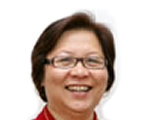
Mee Ling was born in Malaysia and came to the UK aged 16. Currently overseeing NHS services in Southwark, South London, Mee Ling is responsible for ensuring that the people of the borough have access to good quality healthcare and enjoy good health and well-being. Away from her public appointment Mee Ling runs a small research company and is heavily involved in public life, having been deputy leader of Lewisham Council for the last four years.
Her role as Chair of the Southwark NHS Board might sound demanding and challenging. It is, however, a part-time role allowing Mee Ling to continue to run her own research business and contribute to her other charitable work. Mee Ling has used her experience as an ex-councillor and now NHS Chair to become a passionate advocate of participation in public life.
"Public appointments are personally enriching - giving people the opportunity to put something back into the community. Good quality public services really matter; through my public appointments, I have the ability to make them even better. I also hope to see more women, particularly those from ethnic minority communities like myself, becoming involved"
Asif Iqbal, Member of the Disability Employment Advisory Committee and the Disabled Person Transport Advisory Committee
"I hope to inspire people from all sections of the communities and all walks of life that if I can do it – then they can too!"
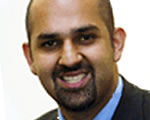
Asif has a wide experience of deaf, disability and black and minority ethnic groups (BME) issues. He is currently the Media/Project Manager for Deaf Parenting UK.
As a member of the Disability Employment Advisory Committee and the Disabled Person Transport Advisory Committee, Asif represents the needs of deaf and disabled people, including people from ethnic minority communities, at senior levels within government.
"I hope to inspire people from all sections of the communities and all walks of life that if I can do it – then they can too!"
Nitin Dahad, East of England Development Agency
"Having the responsibility of a public appointment means you can influence change whether it is local or national"
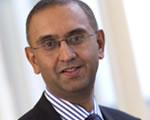
Nitin Dahad started his working life as a technology journalist and worked his way through various corporate roles in the global technology sector. He then helped grow a small technology start-up business to a very successful exit and has applied his entrepreneurial skills to a number of emerging businesses. These experiences has proved invaluable to Nitin in his public appointment as a non-executive board member of the East of England Development Agency, where he is helping bring business and community groups together to grow the regional economy.
"My route to the public sector was through my desire to enable networking and support opportunities. Having the responsibility of a public appointment means you can influence change whether it is local or national. Public appointments are usually part-time roles; I also hold a second position on the governing board of a university which has helped raise my profile in the region. I hope I can inspire others to become involved, using their skills to improve public services."
Evelyn Asante-Mensah, Chair of NHS Manchester
"Public appointments can be part-time roles; I balance my professional commitments with being a mother to my four children"
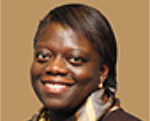
Evelyn Asante-Mensah is Chair of NHS Manchester, the public body providing healthcare services across one of the nation’s biggest cities. From doctors and dentists to voluntary and community services, her role is to ensure local authorities are providing high quality healthcare which is accessible to all members of society. Evelyn was awarded the OBE for her work improving health services – she formerly headed the Black Health Agency and has also promoted equal opportunities.
"Public appointments can be part-time roles; I balance my professional commitments with being a mother to my four children. My advice for potential applicants is that they should be open, objective and enthusiastic but that roles on boards are as much about life experience as they are qualifications."
Emily Lam, independent member for the Cheshire Police Authority
"I've learnt greatly from the people I’ve met and would dearly love others to experience the same"
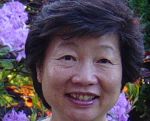
Emily Lam, a career nurse and self-employed education consultant, holds a number of public appointments; she is an independent member for the Cheshire Police Authority, a board member at the Greater Manchester Probation Trust and a non-executive director at the Central and Eastern Cheshire Primary Care Trust.
Emily is keen to make a difference for society and sees her public board positions as opportunities to do just that. Her work for the Cheshire Police Authority, for example, allows the police to be continually up-to-date on the various safety and security needs of the local community.
"I get great satisfaction making a contribution to society with my work on public boards. I’ve learnt greatly from the people I’ve met and would dearly love others to experience the same. Also, today’s Britain is incredibly diverse and holds a variety of views. It is hugely important that governance, performance, budgets, quality etc. are scrutinised by individuals that reflect the community at large."
Lorna Walker
"If you’ve got the experience, use it. It’s a huge learning curve, a great challenge and a perfect way to keep up with skills and influence government."
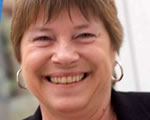
Lorna is Managing Director of Lorna Walker Consulting Ltd, specialising in sustainable development, urban regeneration and policy. As a wheelchair user, Lorna has an interest in the impact of urban development on all people.
Her public appointment as Commissioner for CABE (the Commission for Architecture and the Built Environment) is strategic, with a specific input as Chair of the Sustainable Development Committee. She is also a member of the Operations Committee and Champion for health.
"If you’ve got the experience, use it. It’s a huge learning curve, a great challenge and a perfect way to keep up with skills and influence government."
Sheena Asthana, Commissioner for Rural Communities
"My board level experience has involved a steep learning curve but has also significantly enhanced my confidence in my ability to make a valuable contribution."
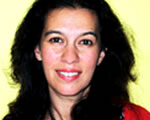
Sheena is a Professor of Health Policy at the University of Plymouth. As a board member of the Commission for Rural Communities, Sheena plays a full and active part in ensuring that the voice of rural people, businesses and communities is heard by policy-makers within government.
"My board level experience has involved a steep learning curve but has also significantly enhanced my confidence in my ability to make a valuable contribution."
Anil Ruia, Trustee of National Museums Liverpool
"It is important not to be afraid. If I don’t understand I ask, that’s something I like to encourage. We create a decision making process that everyone contributes to."
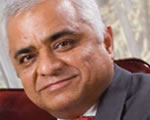
Anil is Director of Wrengate Limited, a privately owned business involved with importing, distributing and manufacturing textiles. As a trustee of National Museums Liverpool, Anil provides strategic advice to help plan and direct the museums’ activities. This requires a commitment of five trustee meetings a year and several financial planning sessions. Anil enjoys the openness of the discussions among board members.
"It is important not to be afraid. If I don’t understand I ask, that’s something I like to encourage. We create a decision making process that everyone contributes to."
Amerdeep Somal, Independent Police Complaints Commissioner
“I like to perform public roles which contribute towards the creation of a fairer, more diverse society – an ideal close to my heart."
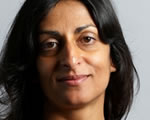
Amerdeep is a lawyer who has worked at the Crown Prosecution Service. As a member of the Independent Police Complaints Commission (IPCC), Amerdeep oversees investigations into the most serious complaints against the police. Her background as a criminal lawyer helps ensure that the IPCC upholds fairness to both complainants and police officers alike.
“I like to perform public roles which contribute towards the creation of a fairer, more diverse society – an ideal close to my heart."
Yinnon Ezra MBE, Trustee of the National Heritage Memorial Fund and member of the Museums, Libraries and Archives Council
"My initial contact with the public appointments process was not a good one... but I persisted as I felt that I had something to offer."
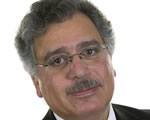
As a Local Authority Chief Officer, Yinnon has extensive experience of initiating and delivering innovative change, through 'transformation' and collaborative working.
Yinnon is a member of the Museums, Libraries and Archives Council. He is also a trustee of the National Heritage Memorial Fund. With a background in local government, Yinnon is able to build strong links between these bodies and local communities.
"My initial contact with the public appointments process was not a good one... but I persisted as I felt that I had something to offer."
 Facebook
Facebook Twitter
Twitter StumbleUpon
StumbleUpon Delicious
Delicious Reddit
Reddit

